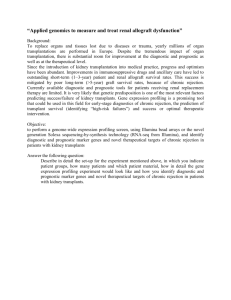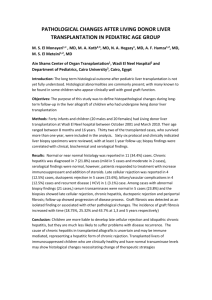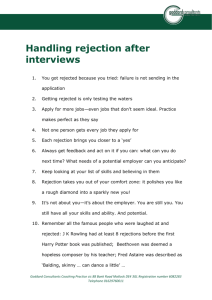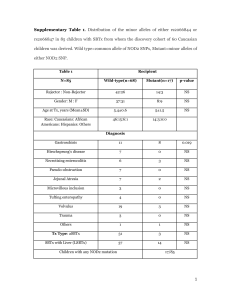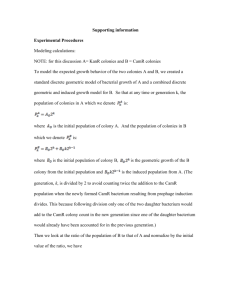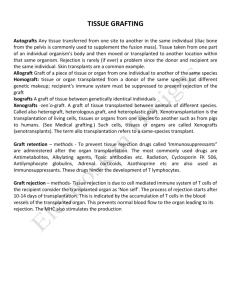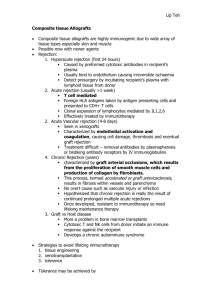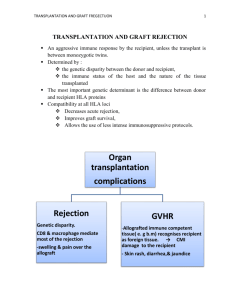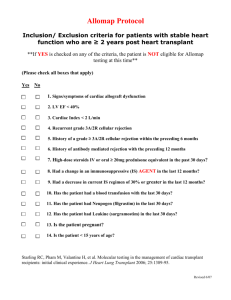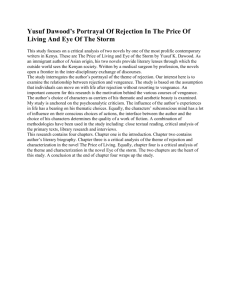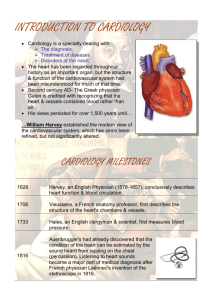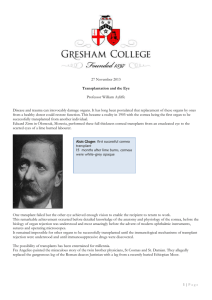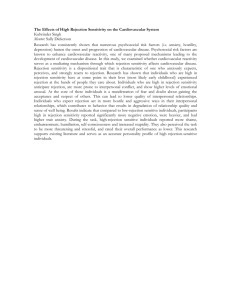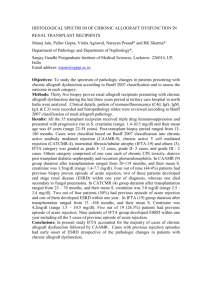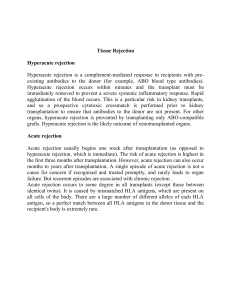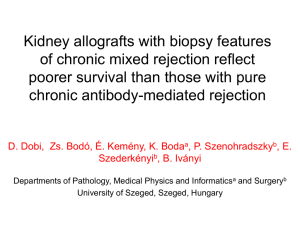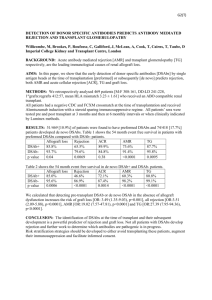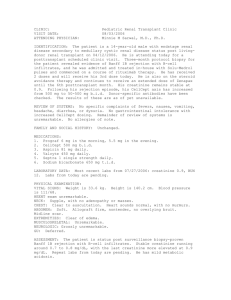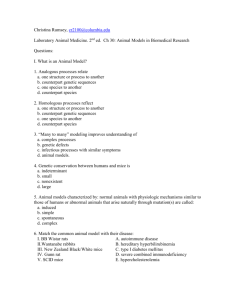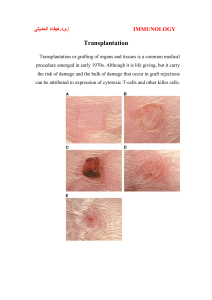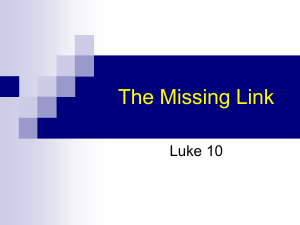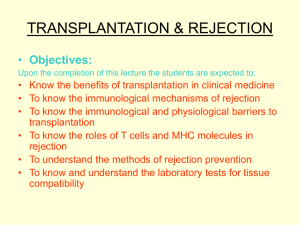Treatment and prevention of chronic antibody
advertisement
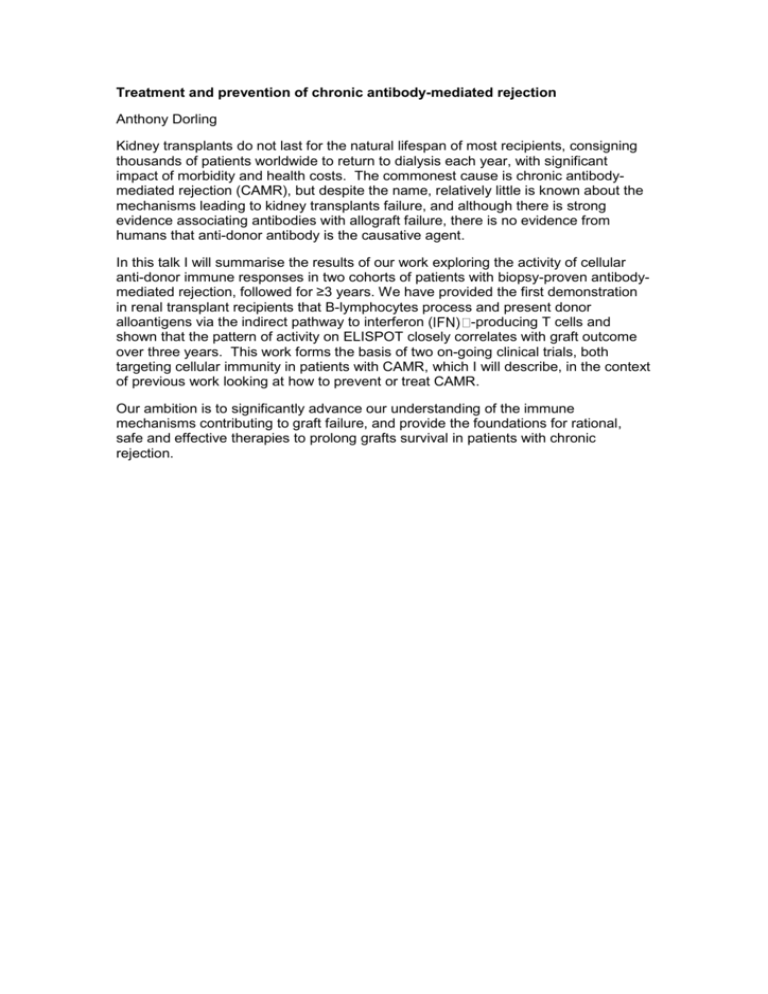
Treatment and prevention of chronic antibody-mediated rejection Anthony Dorling Kidney transplants do not last for the natural lifespan of most recipients, consigning thousands of patients worldwide to return to dialysis each year, with significant impact of morbidity and health costs. The commonest cause is chronic antibodymediated rejection (CAMR), but despite the name, relatively little is known about the mechanisms leading to kidney transplants failure, and although there is strong evidence associating antibodies with allograft failure, there is no evidence from humans that anti-donor antibody is the causative agent. In this talk I will summarise the results of our work exploring the activity of cellular anti-donor immune responses in two cohorts of patients with biopsy-proven antibodymediated rejection, followed for ≥3 years. We have provided the first demonstration in renal transplant recipients that B-lymphocytes process and present donor alloantigens via the indirect pathway to interferon ( -producing T cells and shown that the pattern of activity on ELISPOT closely correlates with graft outcome over three years. This work forms the basis of two on-going clinical trials, both targeting cellular immunity in patients with CAMR, which I will describe, in the context of previous work looking at how to prevent or treat CAMR. Our ambition is to significantly advance our understanding of the immune mechanisms contributing to graft failure, and provide the foundations for rational, safe and effective therapies to prolong grafts survival in patients with chronic rejection.
